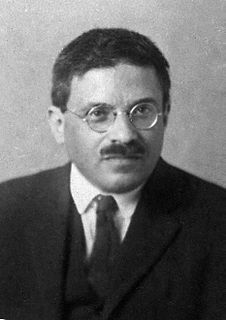Weber is a surname of German origin, derived from the noun meaning "weaver". In some cases, following migration to English-speaking countries, it has been anglicised to the English surname 'Webber' or even 'Weaver'.
Schoenberg is a surname. Notable persons with that surname include:

Paul Ehrenfest was an Austrian and Dutch theoretical physicist, who made major contributions to the field of statistical mechanics and its relations with quantum mechanics, including the theory of phase transition and the Ehrenfest theorem.
Schwarz is a common surname, derived from the German schwarz, pronounced [ˈʃvaʁts](listen), meaning the color black. Notable people with the surname include:
Fischer is a German surname, derived from the profession of the fisherman. The name Fischer is the fourth most common German surname. The English version is Fisher.
Neumann is German for "new man", and one of the 20 most common German surnames.
Schmidt is a common German occupational surname derived from the German word "Schmied" meaning "blacksmith" and/or "metalworker". This surname is the German equivalent of "Smith" in the English-speaking world.
Baum is a German surname meaning "tree". Notable people with this surname include:

Tatyana Alexeyevna Afanasyeva was a Russian/Dutch mathematician and physicist who made contributions to the fields of statistical mechanics and statistical thermodynamics. On 21 December 1904, she married Austrian physicist Paul Ehrenfest (1880–1933). They had two daughters and two sons; one daughter, Tatyana Pavlovna Ehrenfest, also became a mathematician.

Tatyana Pavlovna Ehrenfest, later van Aardenne-Ehrenfest, was a Dutch mathematician. She was the daughter of Paul Ehrenfest (1880–1933) and Tatyana Alexeyevna Afanasyeva (1876–1964).

Paul is a common masculine given name in countries and ethnicities with a Christian heritage and, beyond Europe, in Christian religious communities throughout the world. Paul – or its variations – can be a given name or surname.
Tanner may be a surname of either English, German or Finnish origin. The Anglo-saxon Tanner was an occupational surname while the German form, also spelled Danner, is likely topographic from German 'Tanne', meaning fir tree an 'Tann', a place name referring to this. In the Finnish language surname the word 'tanner' is a synonym for field or ground.
Schneider is a very common surname in Germany. Alternative spellings include: Schneyder, Schnieder, Snyder, Snider, Sneider, Schnyder, Znaider, Schnaider, Schneiter, Shneider, Sneijder (Dutch), Snither (English), Snyman (Afrikaans), Schnider, Sznajder, Szneider (Polish), Snaider, Šnajder, and Schneidre (France).
Wolf is a name that is used as a surname, given name, and a name among Germanic-speaking peoples: see Wulf. Names which translate to English "wolf" are also common among many other nations, including many Native American peoples within the current or former extent of the habitat of the gray wolf.
Gross is a surname of German, Prussian, and Yiddish origin. The word means "big", "tall" or "great", and was likely adopted in Europe over the 15th to 19th centuries during the times of the House of Habsburg when monarchs of the royal families were called "the Great". Descendants of this House may have adopted the name Gross from their ancestors. In Germany, the name is usually spelled Groß, which is the correct spelling under German orthographic rules. German-speaking Christian hymns use references to Jesus as "Mein Herr ist Groß" or "So Groß ist der Herr". In Switzerland, the name is spelled Gross. Some Germans and Austrians also use the spelling with "ss" instead of "ß".

Wagner is derived from the Germanic surname Waganari, meaning "wagonmaker" or "wagon driver". The Wagner surname is German. The name is also well established in Scandinavia, the Netherlands, eastern Europe, and elsewhere as well as in all German-speaking countries, and among Ashkenazi Jews. The Wagner surname was first found in Saxony, where the family became a prominent contributor to the development of the area from ancient times.
Ferrari is an Italian occupational surname, the plural form of Ferraro, meaning blacksmith. Notable people with this surname include:
Pfeiffer is a German-language occupational surname meaning "whistler" or "pipe-" or "fife-player" and etymologically akin to English Piper and Fifer; other spellings include Pfeifer. Notable people with the name include:
This page is based on this
Wikipedia article Text is available under the
CC BY-SA 4.0 license; additional terms may apply.
Images, videos and audio are available under their respective licenses.




